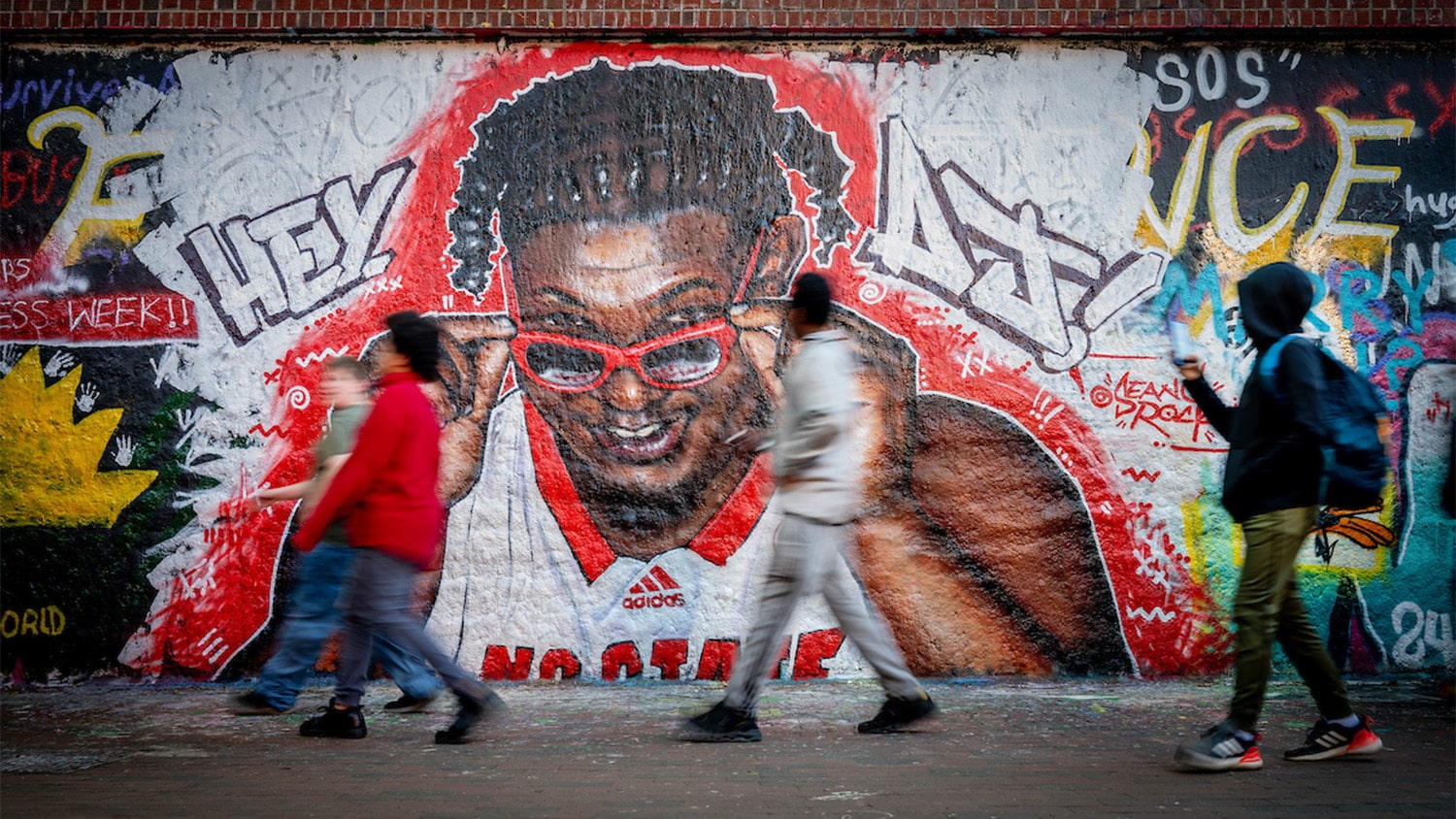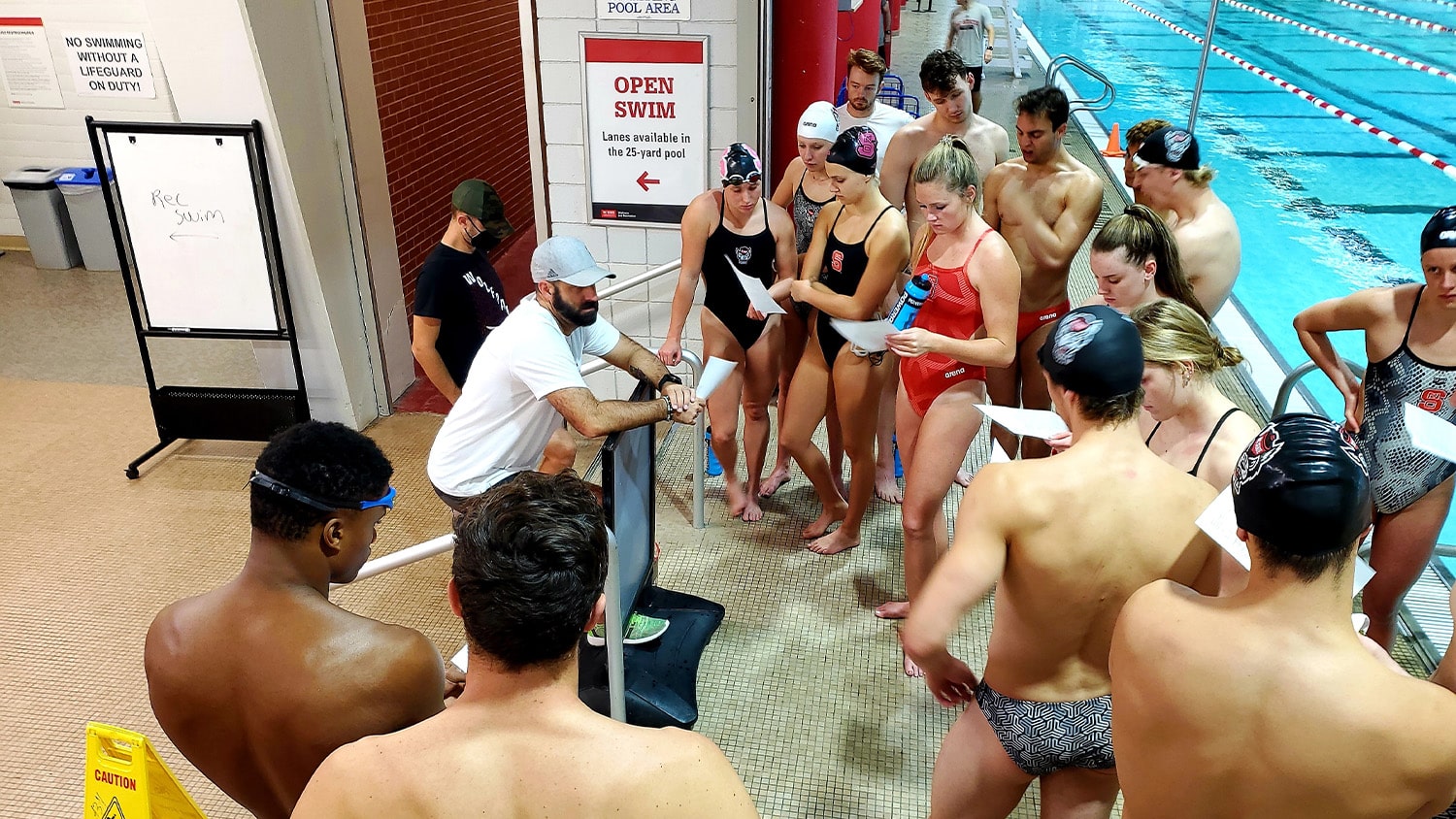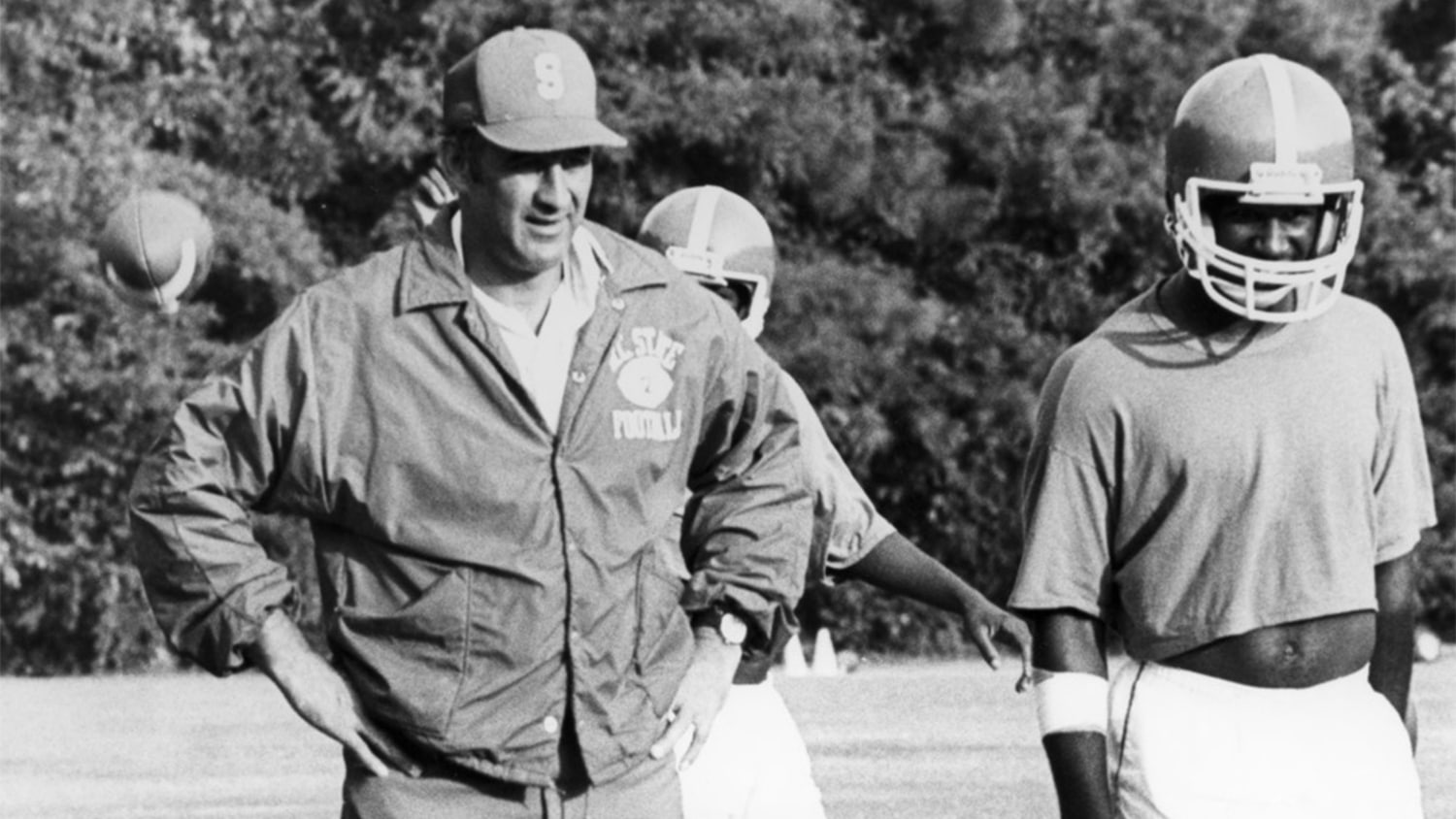A Unified Pack From the Start
As the women’s basketball team celebrates its 50th season, players and coaches reflect on its history as the first women’s sport sponsored by the athletics department — and the only program to be fully integrated from its inception.
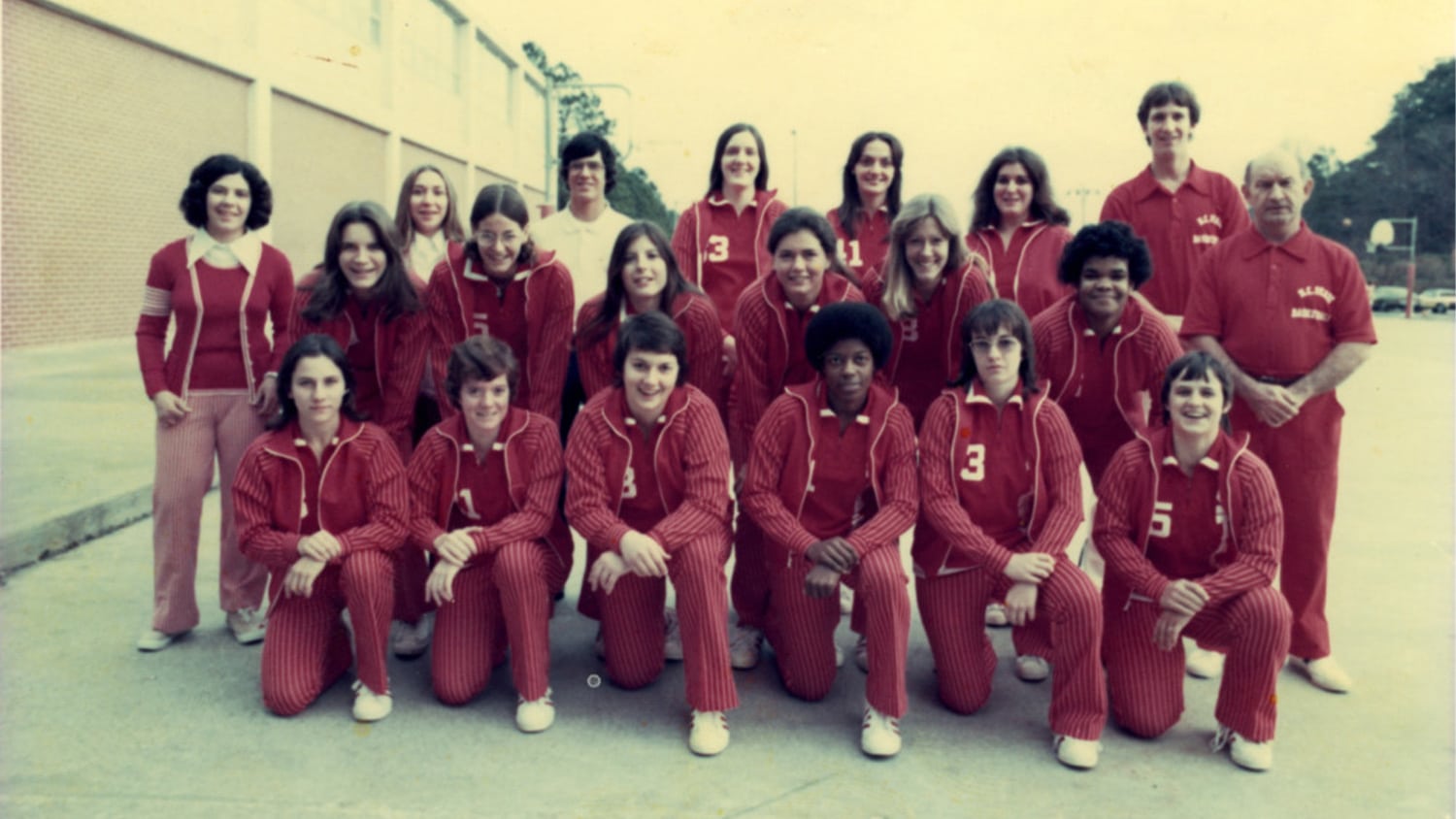
Fifty years ago, when the NC State women’s basketball team played its inaugural varsity game, more than 11,000 curious spectators showed up at Reynolds Coliseum to see the first women’s team sponsored by the athletics department — and the only program to be fully integrated from its inception — debut on college basketball’s biggest stage.
That attendance might have been slightly boosted by the fact that the debut, under the guidance of interim head coach Robert Renfrow “Peanut” Doak, was the opening game for a doubleheader against Virginia with the Wolfpack’s top-ranked and defending national champion men’s team, featuring seniors David Thompson, Monte Towe and Tim Stoddard.
Regardless, it was a State sweep on Dec. 7, 1974, with the women winning 57-45 and the men winning 101-72.
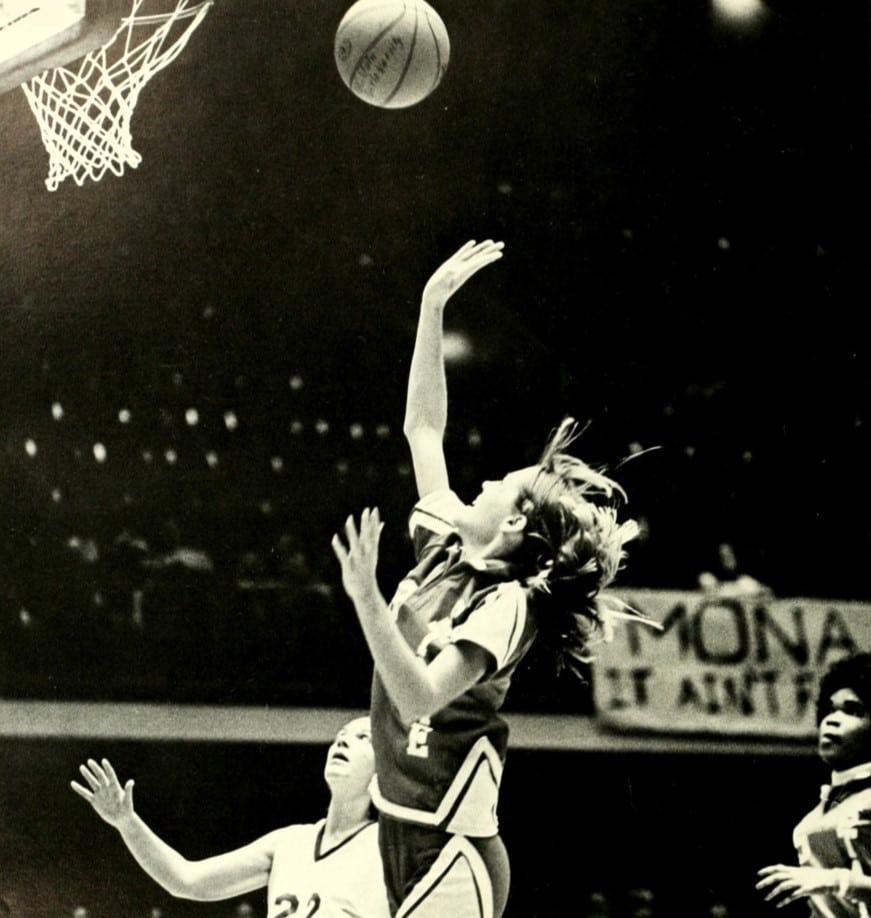
Women’s athletics, two years after the passage of the landmark Title IX of the 1972 Education Acts, was underway.
It’s a little noted fact, however, that Doak’s team was populated by two African American women, Cynthia Steele of Mount Gilead and Gwen Jenkins of Stonewall, on the roster, holdovers from the previous two years when the women’s team was part of the club sports program and coached by two female professors from the physical education department.
Happy to be playing the sport they loved, they didn’t necessarily appreciate back then that they were groundbreakers in the fight for racial equality.
“That part of it really wasn’t a big deal,” says Steele, who earned a degree in sociology from NC State in 1976 and a master’s degree in social work from UNC-Chapel Hill in 1979 and now lives in Charlotte. “We were kids, and, for me, I had been playing on integrated basketball teams my whole life.
“It was always part of what we did.”
In fact, Steele played high school basketball with Genie Jordan Ussery, a senior forward at NC State who led the inaugural team in scoring, at West Montgomery High School.
“We didn’t see color,” says Ussery, who earned a parks, tourism and recreation degree from NC State and now lives in Hilton Head, South Carolina. “We were so grateful to have real jerseys and not be wearing T-shirts. We had real tennis shoes, a real uniform.
“We were just thrilled to be there at the beginning.”
Not all was perfect.
Doak, the son of longtime NC State baseball coach Charles “Chick” Doak, had played football and baseball at NC State in the 1940s before being drafted as a conscientious objector into the U.S. Army during World War II. He coached high school, small college and major college basketball for more than three decades in the state of North Carolina and spent five years as the business general manager of the Carolina Cougars, an American Basketball Association team that split its time in Raleigh, Charlotte and Greensboro.
I’d like to see us play all women’s sports within the ACC, just as the men do.
He may have been the perfect short-term candidate with experience for then-athletics director Willis Casey to hire, but the 59-year-old mentor had never a coached women’s team. He had no scholarships to give and no chance to compete for a conference championship.
“He was a very kind coach,” Ussery says. “But he was never very tough on us. We were used to coaches who were more demanding.”
While his team had uniforms and varsity designation, it did not have a lot of initial support. Most games were in Carmichael Gymnasium, not Reynolds Coliseum. Games that weren’t part of a men’s-women’s doubleheader were sparsely attended. Finding a place to practice was a constant battle with the men’s team, club teams and intramural program.
“There are some people on this campus that still don’t know this is a varsity basketball team,” Doak complained in the Feb. 3, 1975, edition of Technician. “If we’re going to compete on a varsity level with Carolina and others that already have a varsity program, then we are going to have to be treated like a varsity program.
“The girls are going to have to have a court to practice on if we are to compete. You can’t put a team together on half a court.”
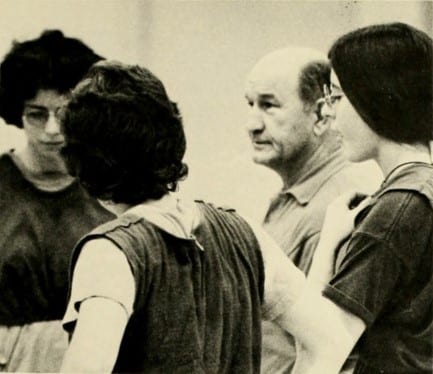
“The chancellor asked for cooperation with the girls’ basketball team, and the girls have been very cooperative. But the other areas have not been so cooperative. There are a lot of things we can do to make this a varsity program, but this is not yet a varsity program.”
Doak knew that he was a one-year interim and that a female coach would likely take his place in short order. That happened in July 1975 with the hiring of Sandra Kay Yow, the women’s coach at Elon College.
He had dreams for the program, though.
“I can envision an ACC Tournament for women,” Doak said. “It seems like just a natural thing. I can see nothing that would bar it.
“I’d like to see us play all women’s sports within the ACC, just as the men do.”
Yow, of course, saw that happen for her sport and others during her 35-year tenure at NC State, where she won more than 700 games, five Atlantic Coast Conference Championships and a spot in the Naismith Memorial Basketball Hall of Fame.
Doak led his team to immediate success after an 8-4 regular season. With three consecutive postseason victories, he guided the Wolfpack Women to the North Carolina Class B Association of Intercollegiate Women’s Athletics championship in 1975. Yow’s first team was second in the Class A division of the state tournament in 1976.
Yow had much respect for the infrastructure Doak left behind after just one year on the job.
“I only knew him a little bit,” Yow said in a 2004 interview. “I had three of the players from his team on my first team: Lulu Eure, Donna Andrews and Stephanie Mason. He knew what Willis wanted and that he would hire a permanent coach the next year.
“I wanted his effort to be remembered, so I initiated an award in his honor.”
The Doak family legacy at NC State lives every time someone mentions the longtime home of the baseball program, Doak Field at Dail Park, and through his niece, Lucia Messina of Greenville, South Carolina, and nephew, Perry Safran of Raleigh. (Safran is currently a member of the NC State Board of Trustees.)
The Wolfpack Women have had just two other coaches in women’s basketball since Doak and Yow: Kellie Harper and Wes Moore.
Heading into tonight’s rivalry game against No. 24 ranked North Carolina, Moore has his team ranked No. 5 in both major women’s college basketball polls, part of a long climb during his 10 years as head coach to the pinnacle of college basketball success in a state known for its hoops passion. He won three consecutive ACC championships for the Wolfpack from 2020-22 and has taken the program to heights Doak never dreamed of, and neither Yow or Harper ever achieved.
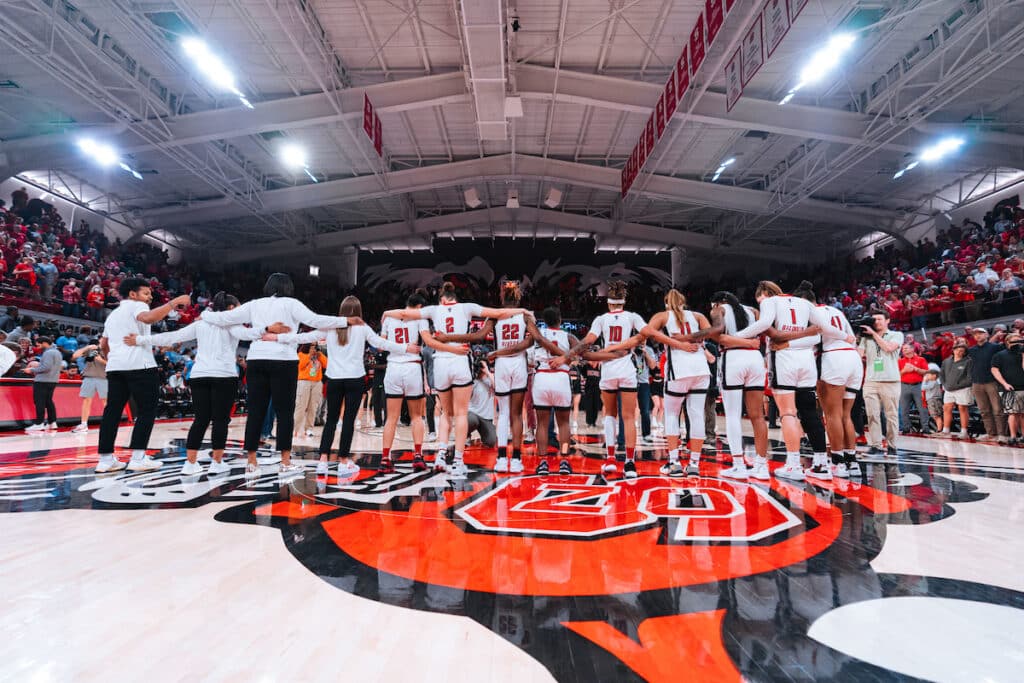
He appreciates the legacy he inherited, not just from Yow, for whom he worked for three years in the 1990s, but also from the foundation Doak left in his brief time on the job.
“It’s really amazing to think that NC State had an integrated team from its inception, and it was the first program to do that on campus,” Moore says. “We’ve come a long way since those first days, and it’s neat to think of how we got started.”
- Categories:
